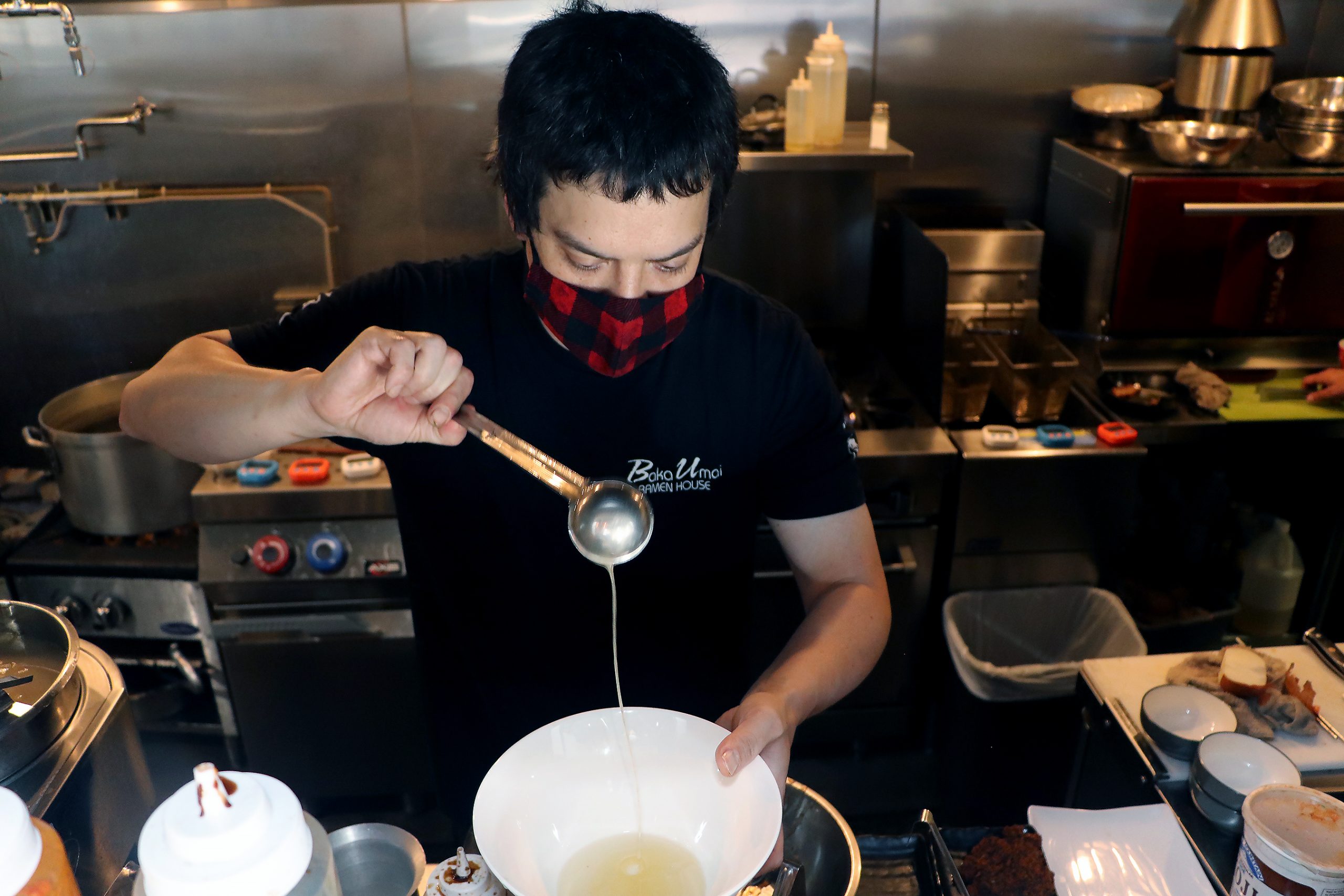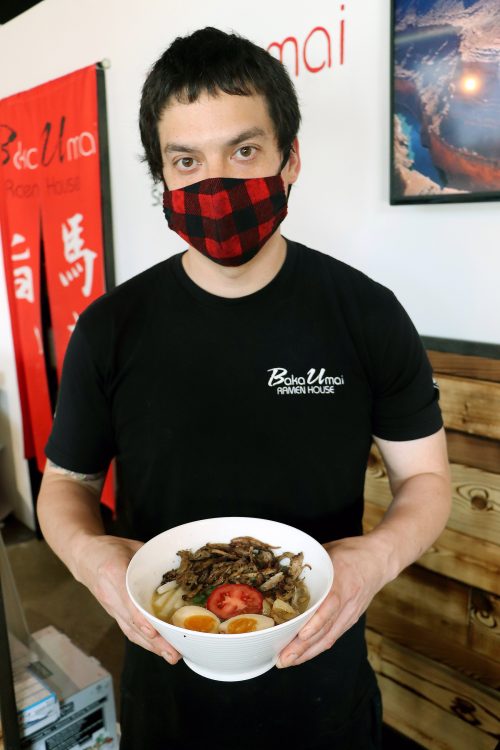This content was published: October 18, 2021. Phone numbers, email addresses, and other information may have changed.
Ramen noodle lover uses business startup program at PCC to build a successful cafe
Photos and story by James Hill
Robert Greenup loves ramen noodles. He loves them so much that he has made a career out of making and serving them to food connoisseurs of Portland.
“I have always been obsessed with ramen ever since I was very young,” Greenup said. “I’d eat ramen for breakfast, lunch and dinner.”
Along with his wife, the Greenups tapped their love of noodles and world cuisine to open the Southeast Portland restaurant Baka Umai, which offers Japanese-inspired ramen sources with fresh local ingredients. This dream of owning his own business was made possible by attending the Portland Community College Small Business Development Center’s Restaurant Business Builders Program.
“It was very beneficial to hear from people who were experienced and successful,” Greenup said. “The program was extremely useful.”

Restaurant Builders Program
This program through PCC’s Small Business Development Center, helps people start their own restaurant, cafe, or food cart business or run an established business more efficiently. Business advisors and some of Portland’s top chefs guide owners through the process of finding the right location, recruiting and hiring staff, buying, attracting customers, managing food inventory, and tracking cash flow.
Besides offering a myriad of support from advisors and professionals in the food industry, owners in the program learn to create additional revenue streams, build a buzz around their brand and attract more customers.
“You don’t know what you don’t know, and as you work through the process you find obstacle after obstacle,” said Greenup. “The high number of regulations that are in place by the city of Portland and Multnomah County makes the process very daunting. The program helped lay out a path to follow and provided great knowledge resources to assist in turning the dream into reality.”
However, once Greenup cleared the hurdle of just getting the restaurant up and running, then COVID-19 hit. The pandemic impacted his restaurant’s customer flow, increased food prices, and caused many core supplies to go out of stock. Greenup used the program to get advice via virtual meetings and resources to navigate challenges and work to find alternatives to attract customers.
“We spent a lot of time making sure how food was portable and had good enough quality for take out,” he said. “We’ve made many strides to make our operation more streamlined and efficient. I have not been able to hire many people due to the customer variability, so I’ve had to work 100-plus hours every week.”
His dedication shows how Greenup loves food and his business. Ever since he was a kid, Greenup has been inspired by eating his mother’s Japanese food, visiting Japan on culinary excursions, and being inspired by his father’s love of spices. Before COVID-19, he and his wife traveled all over the United States and the world to sample cuisine and find inspiring dishes.
“Japan had the most amazing instant ramen,” he remembered. “Dried strips of meat and full complement of dried veggies that would rehydrate. I couldn’t get enough of it. We had my grandma ship us cases of those noodles for months after we came back to the states.”
Adding to his palate was his father’s love of spice and he would cook up spicy dishes for him, such as kung pao chicken, spicy chili, and salsas. Greenup’s father special ordered hot sauces that would come in a little mini coffin and had a warning label attached to it.
“He told me they called it the ‘attitude adjustment’ at work,” Greenup laughed. “No matter how bad your day was, if you took a drop of that hot sauce, it would completely clear your mind. I was addicted to it and felt a euphoria that I had never experienced before. I was completely hooked on spice after that.”
Before establishing his own business, Greenup worked at a few restaurants as a teenager but didn’t get fixated on opening and running his own restaurant until about seven years ago. To reach his goal, he dedicated himself to learning how to make his own noodles before finally opening Baka Umai.
“I had no idea ‘gourmet ramen’ was a thing,” he said. “I started making a batch of broth every weekend until I got it dialed in. Then my wife and I started hosting ramen parties and all of the guests started telling me I should open my own shop. That’s when I really started believing I could do this. My obsession with ramen and the opportunity to open a restaurant seemed like the perfect marriage.”

